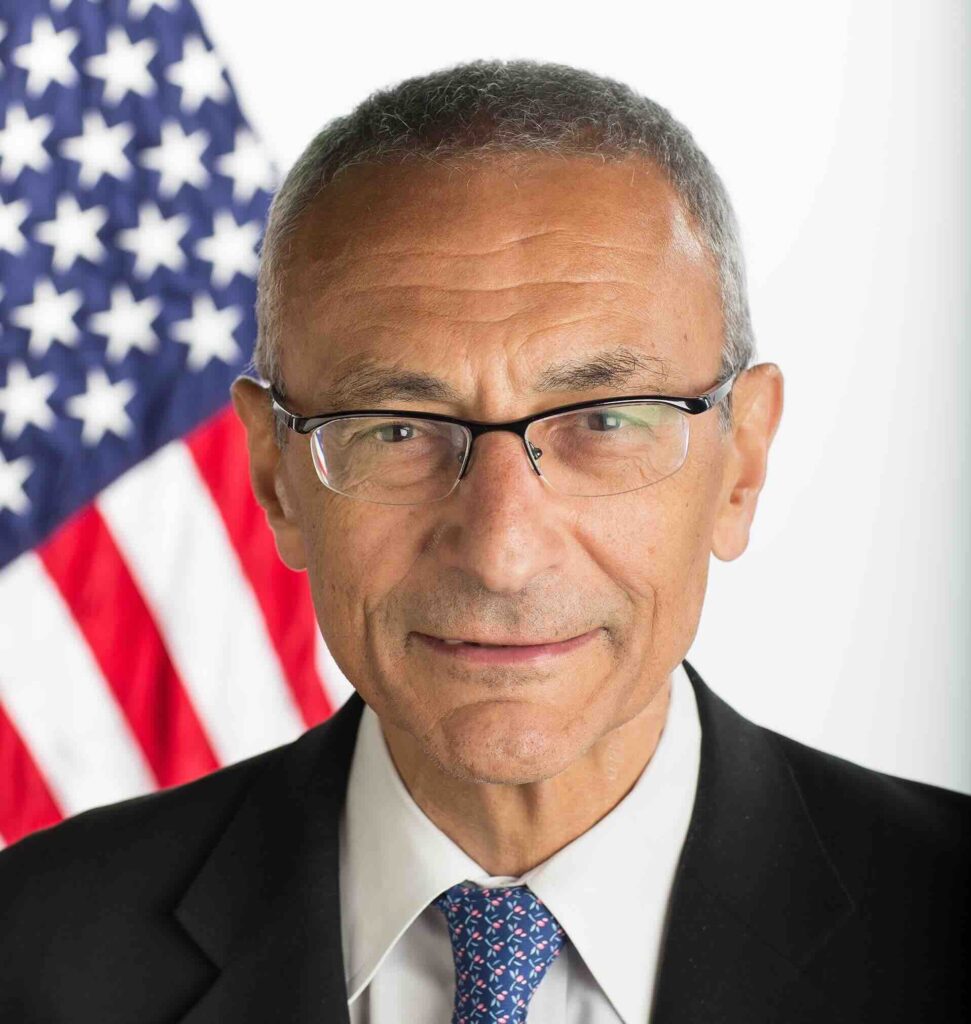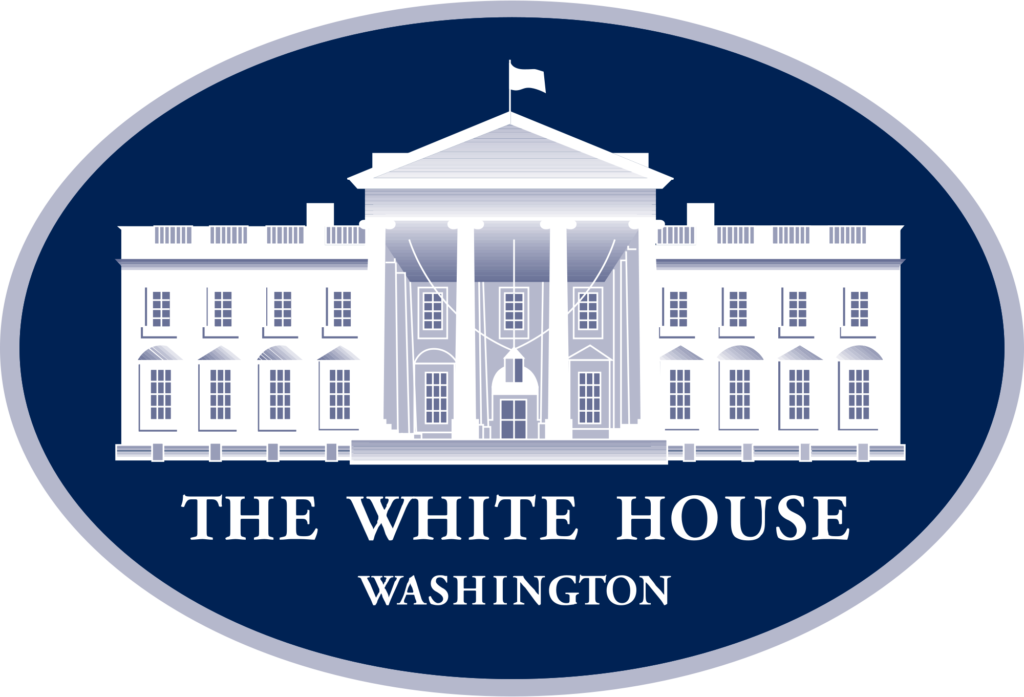


A Cabinet-level position that serves on the National Security Council and leads the Administration’s efforts to combat global climate change.
John Podesta is the Senior Advisor to the President for International Climate Policy.
Podesta served the Biden Administration as the Senior Adviser on Clean Energy Innovation and Implementation. He previously served the Obama Administration as Counselor and the Clinton Administration as Deputy Chief of Staff for Operations and Staff Secretary. He also served as a member of the U.N. Secretary General’s High-Level Panel of Eminent Persons on the Post-2015 Development Agenda. He is also the founder of the Center for American Progress.
Past statements on development, diplomacy, and U.S. global leadership:
On Climate Change: Reflecting on the Quadrennial Defense Review of 2014, Podesta said that, “The Quadrennial Defense Review first identified climate change as a threat multiplier, and I say today that we shouldn’t think about it as a threat multiplier, it is the threat.” (source)
On China: “I think we were overly dependent on China, in both the upstream solar and in critical minerals and batteries. China still retains a significant chunk of the production and know-how. We’re trying to change that—to smoothly and quickly create more secure supply chains through partners, friends, and domestic production.” (source)
On Clean Energy: “I don’t think anyone could look at the push toward electrifying transportation; electrifying buildings; clean power; trying to push forward with climate-smart agriculture, climate-smart forestry; the massive new investments in clean manufacturing, both in electric vehicles and the solar supply chain coming to the United States; and suggest anything other than that our push is toward a clean-energy future.” (source)
On Carbon capture: Addressing the carbon capture provision of the Inflation Reduction Act, Podesta remarked, “There’s also going to have to be a significant amount of carbon removal in order to hit the net-zero goals by mid-century, and some of that’s going to happen by direct removal of carbon from the atmosphere. I think that it’s incumbent in this decade that we begin to create strong environmental protections for the technologies that are going to be required if we’re going to stabilize the atmosphere.” (source
On Public-Private Partnership: “The I.R.A. is a little bit different than most legislation that passes, in the sense that it’s government-enabled but really private-sector led. It requires the investment—and we believe we’re seeing that investment—to create that cycle of innovation, that cycle of job creation, of business development, going on across the country.” (source)